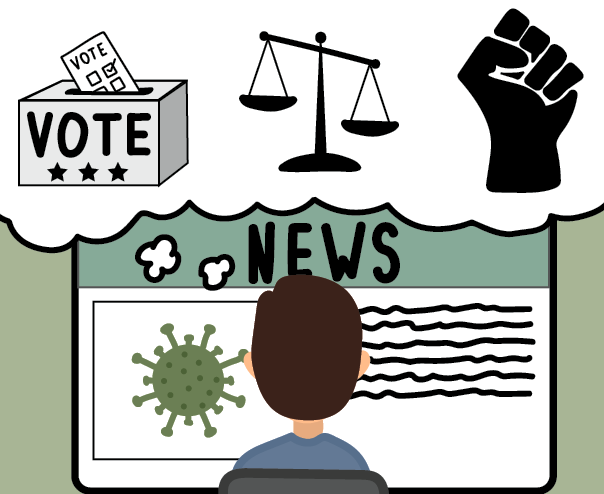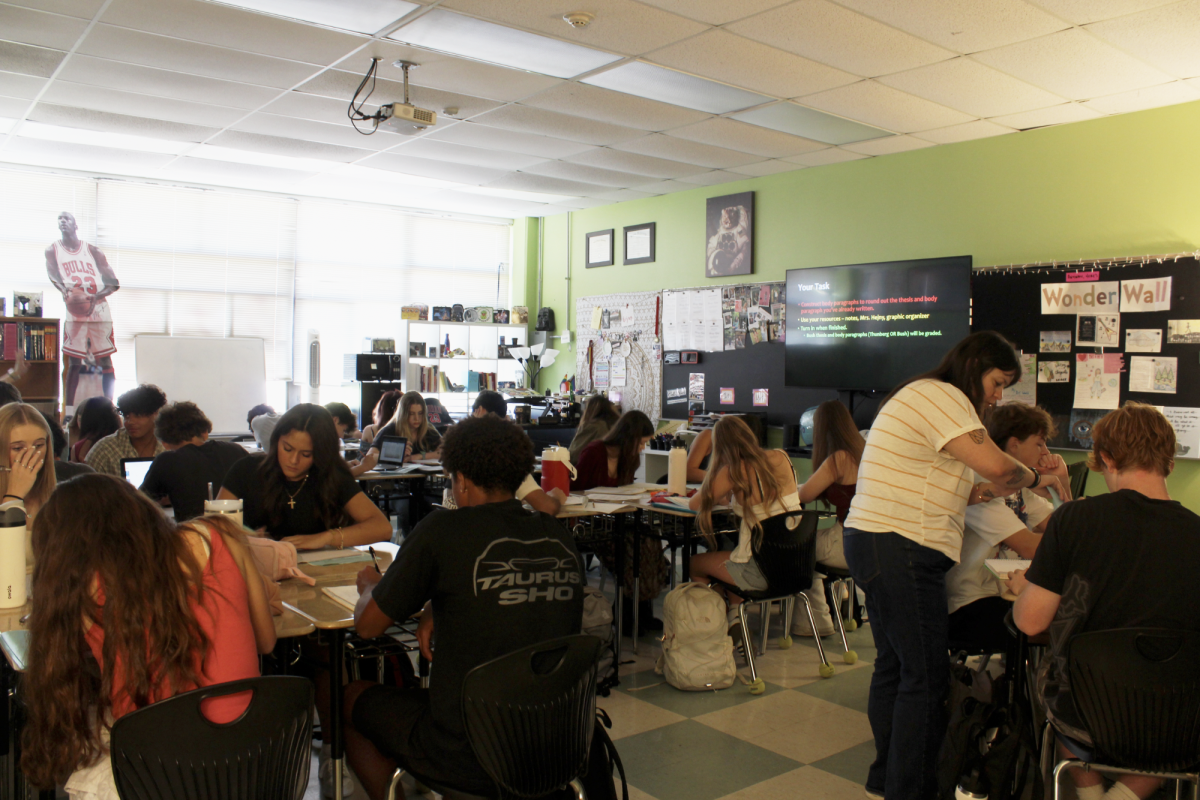Current events are shaping youth attitudes for the future
April 1, 2021
Between the COVID-19 pandemic, the Black Lives Matter protests, and the presidential election, 2020 was an overwhelming year.
Due to lockdowns and constant access to social media, many events received lots of traction from the media. These events will shape how young generations vote and view their government, as well as how they use the internet.
One event from the past year that will shape younger generations is the COVID-19 pandemic. Because of how long the pandemic has lasted and how poorly it was handled, it will affect who Generation Z votes for in the future and how they view the government.
A majority of the COVID-19 response was orchestrated by a largely conservative government under the Trump administration. This government enabled over 400,000 COVID-19 deaths in 2020 through a lack of nation-wide COVID-19 restrictions or warnings about the coming pandemic. With such a high death toll in the hands of one administration that was enthusiastically enabled by conservatives, it’s clear that the Republican party members who allowed such negligence have little to no care for the people they’re supposed to be representing.
In addition to all those deaths during the pandemic, the government gave little to no money to people affected by COVID-19. What does giving only $600 in stimulus communicate to Americans who are counting on their voice to be heard through their representatives?
People pay an insane amount of money in taxes (that funds the paychecks of their representatives) and Congress can’t even give them money to feed themselves or pay rent. A lack of action from the government creates a lack of trust from those it governs, and the lack of action on the part of the Trump administration will be noted as a part of the generation-defining event that is the COVID-19 pandemic.
While the Biden administration is planning on giving $1400 to those who meet the requirements, a total of $2000 is nowhere near the amount of money that the average working-class citizen needs to survive. The government expects the people it serves to be satisfied with little to nothing while Congress members make six figures a year.
However, these injustices aren’t going unnoticed and are becoming more accessible to ordinary people. Thanks to social media platforms, information and evidence is available to anyone seeking it. Social media users (namely Generation Z and Millennials) have access to firsthand accounts of protests and information about current issues at their fingertips thanks to social media platforms like TikTok and Twitter.
By having relatively unlimited access to information, it makes everything from learning about current events to expressing opinions and ideas to government representatives easier.
However, America is also seeing a downside to the wide reach of social media platforms. The attack on the Capitol on Jan. 6 was made possible because of the reach of social media. The attack was encouraged by Donald Trump and was planned online on public forums, forums that can be easily accessed by pretty much anyone, including government officials. The federal government had the power to stop this attack, but chose not to and enabled violence.
However, this attack exposed the general public to the dangers of the unchecked white supremacist ideologies that were allowed to fester on social media sites. Because the nation has witnessed the consequences of unchecked white supremacy in online spaces, it is a much more realistic threat and therefore one that is of more concern to the federal government than it was at the time of the attacks on the Capitol.
2020 was a difficult year and it is essential that we don’t downplay the number of people affected by the carelessness of the government and the systematic racism that America was founded on. By openly displaying the faults of this country, we give younger generations the opportunity to see things the way they really are and create change as quickly as possible.








